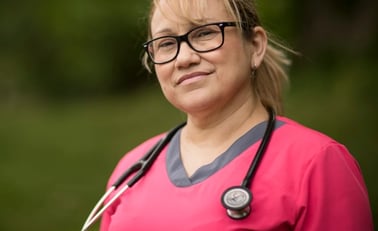Mission, Vision, and Values
The core of Labouré College of Healthcare.
Our Mission
The mission of Labouré College of Healthcare is to educate underserved populations to become exceptional healthcare professionals who represent the rich diversity of our communities. Inspired by the values of our founders, the Daughters of Charity, we prepare our graduates to deliver high-quality, equitable, and dignified care to all.
Our Vision and Values
The vision of Labouré College of Healthcare is to:
- provide student-centered and innovative education for diverse learners
- foster a healthcare workforce that is representative of the communities they serve
- prepare graduates to be dedicated and informed patient advocates
- address inequities within healthcare and society
We value:
- Compassion
- Empathy
- Equity
- Integrity
- Excellence
- Resilience
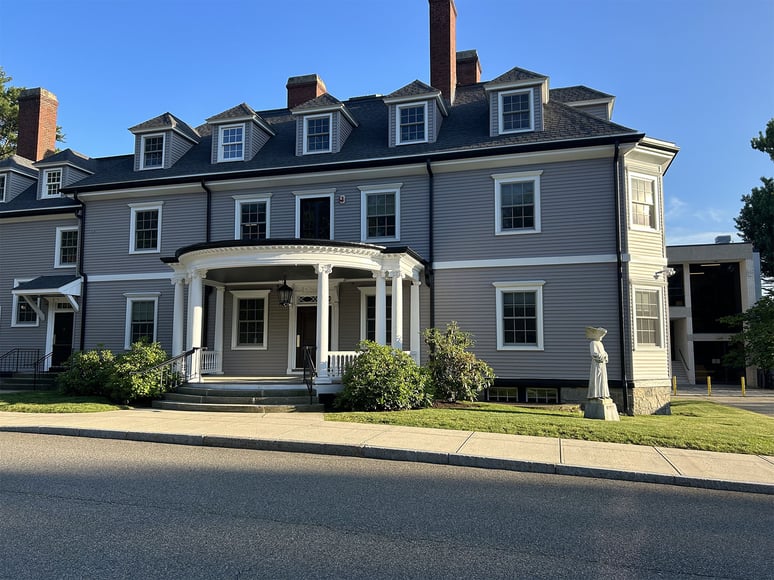
Since our founding in 1892, we have been committed to upholding the values of our namesake, St. Catherine Labouré, and our founders, the Daughters of Charity, by instilling in our students the importance of bringing dignity, compassion, and empathy to the people entrusted to their care.
History
The college's roots date back to 1892 with the opening of the Carney Hospital Training School for Nurses in South Boston, Massachusetts. The school was sponsored by the Daughters of Charity of Saint Vincent DePaul.
In addition to Carney Hospital Training School for Nurses, the Daughters of Charity also operated the St. John Hospital School of Nursing - established in Lowell, Massachusetts in 1892 and the St. Margaret Hospital School of Nursing established in 1903 in the Dorchester section of Boston.
In 1951, the Daughters of Charity merged the three schools into a single institution. This institution became known as the Catherine Labouré School of Nursing - the first independent, regional, three-year diploma program in New England. Classes were held on the campus of Carney Hospital in South Boston until 1954 when Catherine Labouré School of Nursing moved to the site of the new Carney Hospital in Dorchester.
Now located in Milton and a commuter campus, the college's Dorchester era included some time as a residential campus. Though students no longer live on campus, the activities of nursing school remain much the same - meeting with advisors and instructors, attending lectures, studying together, taking breaks together, and occasionally burning the midnight oil. Photos from 1950 - 1963.
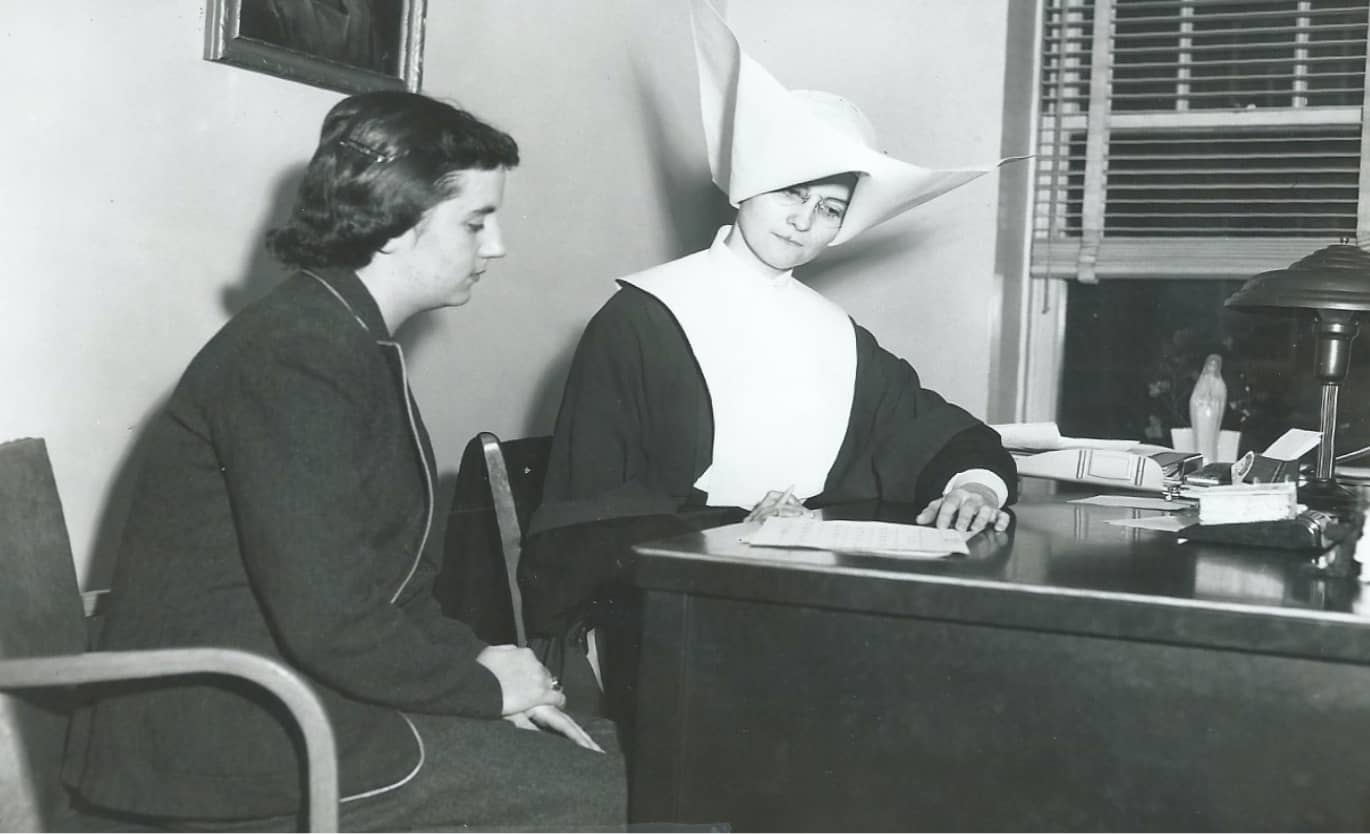
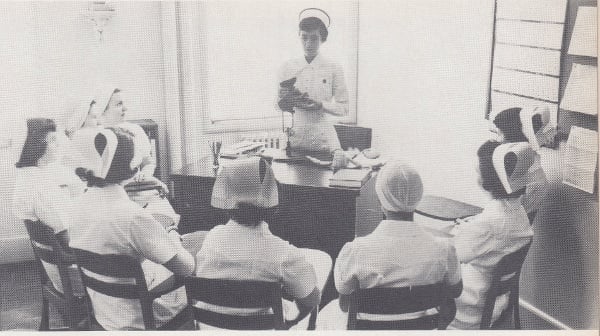

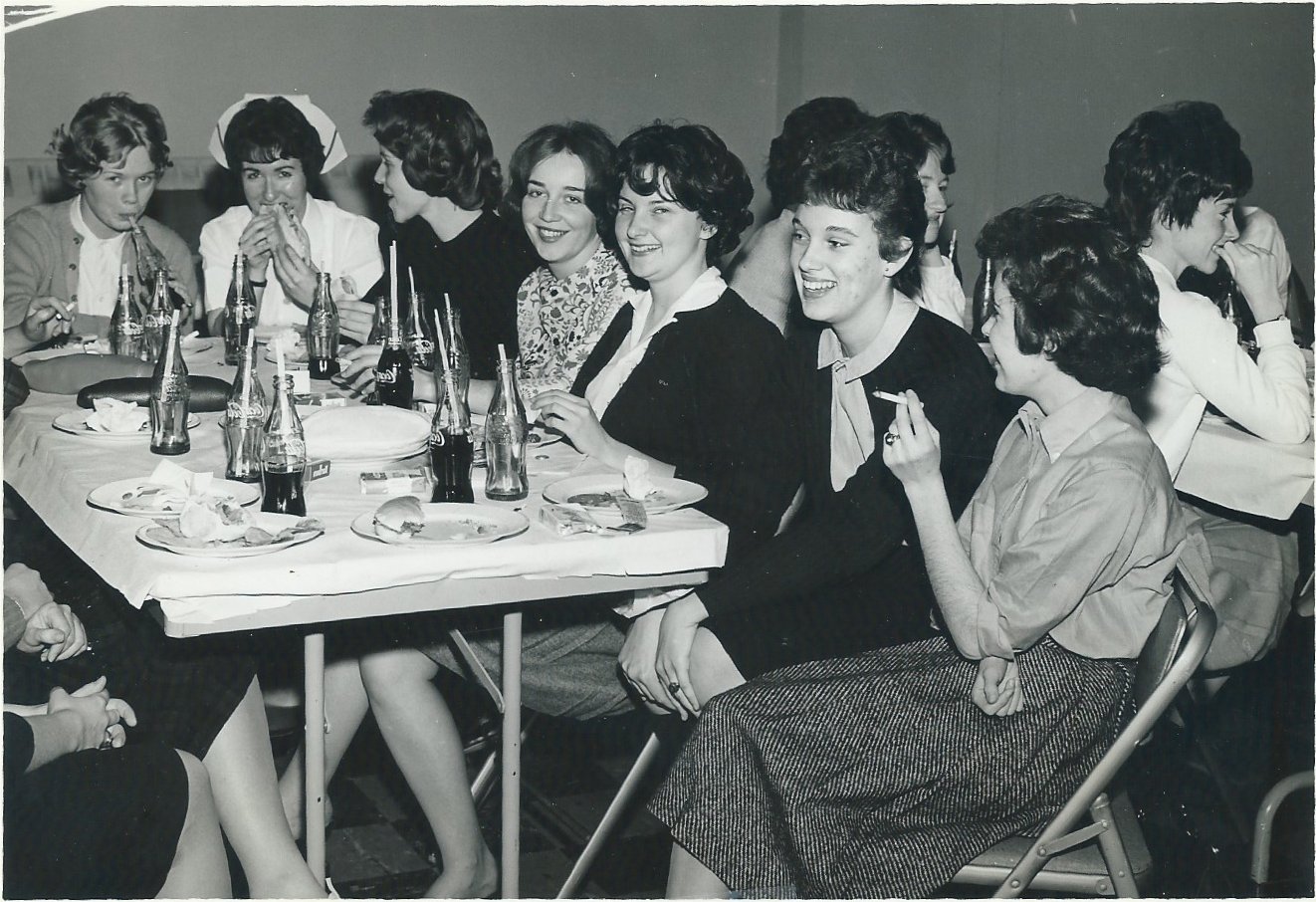
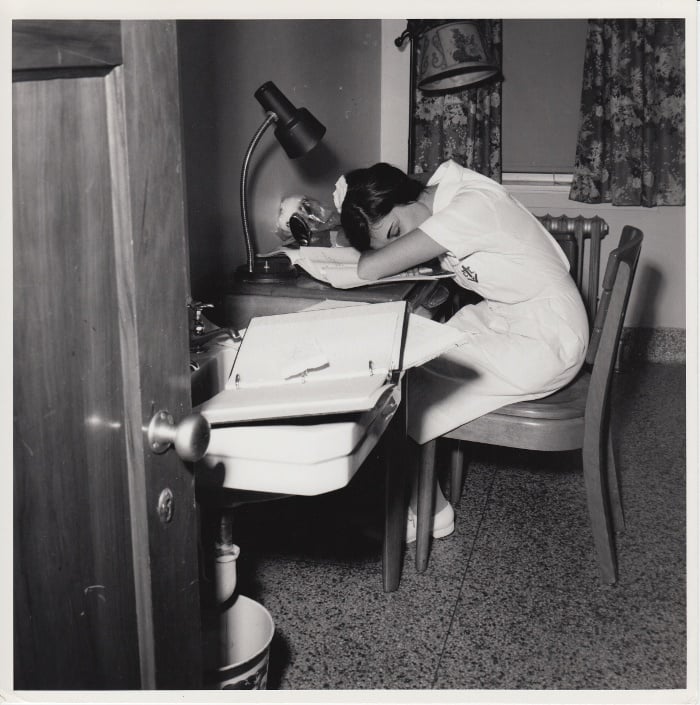
In 1971, the Commonwealth of Massachusetts amended the charter of the school of nursing to provide for associate degree-granting authority in nursing and allied health. In 1971, Catherine Labouré School of Nursing became officially Catherine Labouré Junior College. In 1984, Catherine Labouré Junior College changed its name to Catherine Labouré College. In 1993, the name was formally changed to Labouré College.
In April of 2008 the Massachusetts Board of Higher Education granted the College's request to offer a RN-BSN program. The College accepted its first BSN class in January, 2009.
ALUMNI STORIES

Lauriat came to Labouré College from Revere, MA, attracted to then Catherine Labouré School of Nursing at Carney Hospital by its great reputation. “It was a great base for my nursing career,” said Lauriat.
In 1989, the college became an associate member of the Daughters of Charity National Health System (DCNHS) and in 1993; the college became a subsidiary of Carney Hospital. In 1997, the Daughters of Charity transferred control of both Carney Hospital and Labouré College to Caritas Christi, the network of Catholic healthcare providers sponsored by the Archdiocese of Boston. In November, 2010, CCHCS entered into an agreement with Cerberus Capital Management to transfer its assets and liabilities to a newly created Steward Health Care System LLC (Steward). Although the overall transaction was structured as an asset purchase, the assets of Labouré were not transferred or sold under the transaction. Rather at the closing of the transaction, Steward Health Care LLC was substituted for Carney Hospital as the sole corporate member of Labouré.
In June of 2013, Steward Health Care LLC withdrew as the sole member of Labouré College, substituting a new class of individual members. Steward also initiated a complete and amicable disaffiliation with Labouré College.
Independent for the first time, Labouré purchased its current campus at 303 Adams Street in Milton in 2013.
Throughout its history, the College has continued to embrace the values held by our founders, the Daughters of Charity, and we honor this legacy by providing opportunities for exceptional healthcare education to diverse men and women who are called to care for others.
In 2021, the College changed its name to Labouré College of Healthcare - a name that clarifies this mission and communicates that healthcare is not one of many programs offered at Labouré - it is our sole focus, our specialty, our history, and our future.
